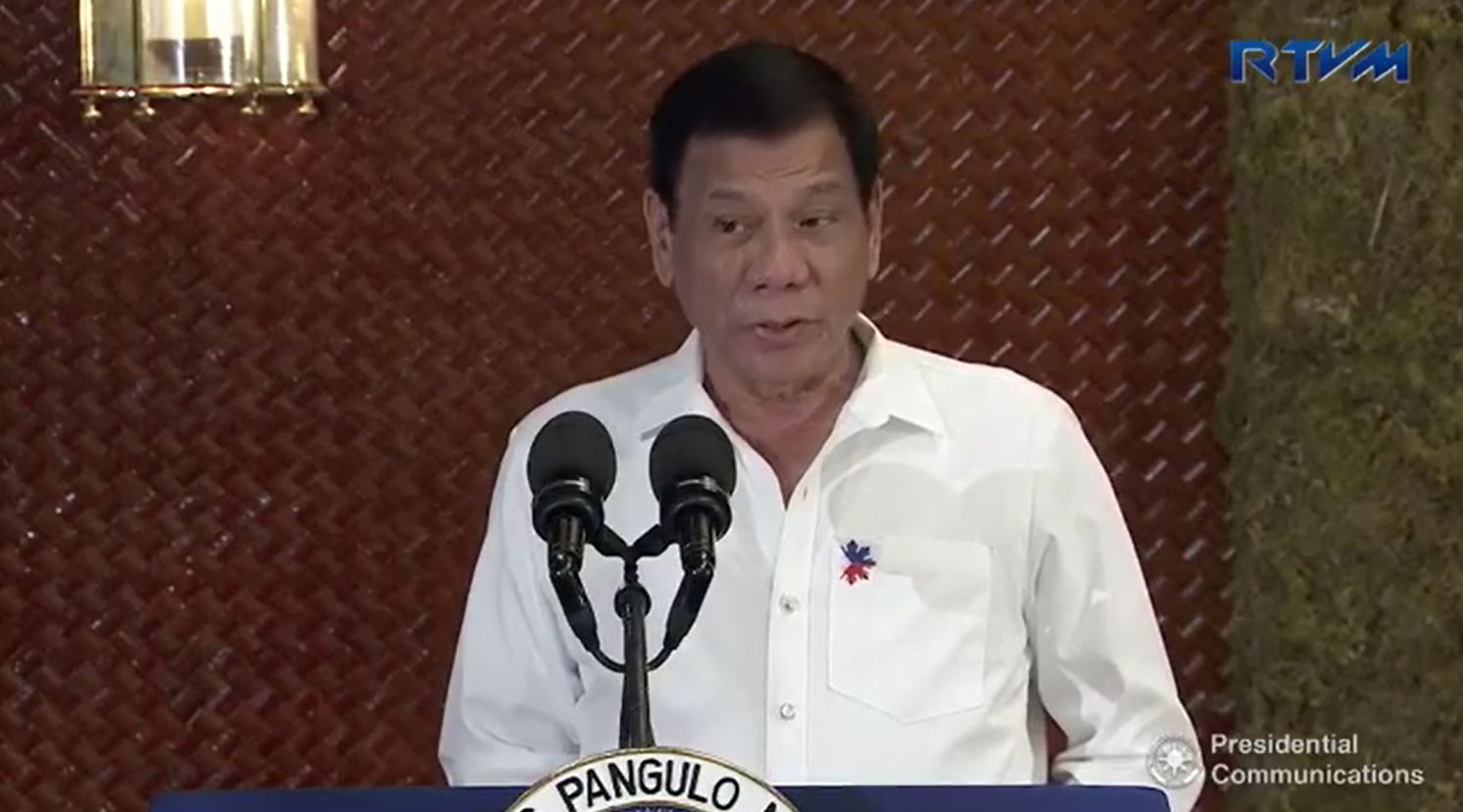
(Eagle News) – After lengthy discussions with his Cabinet members and advisers, President Rodrigo Duterte on Monday (November 7) said he would now uphold and sign the Paris Agreement which seeks to put a cap to emissions that contribute to global warming.
Duterte said he and his cabinet members took several hours to discuss the Paris climate deal, a worldwide pact to battle global warning that entered into force on Friday, Nov. 4.
This was just a week before nations reassemble to discuss how to make good on their promise to cut planet-warming greenhouse gases.
Duterte said he would sign the climate change agreement.
The President recalled that there was a unanimous vote in his cabinet regarding the deal, and he was having some concerns before regarding the deal.
“After so much debate, ‘yung climate change [agreement] pipirmahan ko because of a unanimous vote except for one… and ako ‘yung isa which was arguing about if it’s a binding treaty you have to have a sanction,” Duterte said during the oath-taking of National Press Club officials in Malacañang.
The President had earlier said he was not in favor of the Paris climate deal as it could limit the progress of developing countries like the Philippines
He had criticized western countries for imposing a carbon limit on developing countries s to mitigate the impact of climate change.
The previous Aquino administration had signed the climate agreement, but the President then said he would not honor it as this might slow down the growth of the country.
When he railed in July against the Philippines’ commitments, Duterte said the agreement would stop developing countries from industrialising by burning fossil fuels — as rich nations had done.
“There is no treaty to honour. We have not signed the treaty,” Duterte said then.
“If you will not allow us to reach parity, you are already there and we are still here, then I’m saying that’s crazy. I will not agree to that.”
However the Paris Agreement does indeed allow for developing nations to continue to burn fossil fuels.
Duterte’s cabinet members, some other lawmakers and one of his most important political allies, ex-president Fidel Ramos, said following those comments that they would try to educate the president about the Philippines’ climate future.
Committing to the pact is a two-step process. The first occurred with the initial pledges and agreement in Paris last year.
The second is a formal ratification.
Duterte said his earlier pronouncements against the Paris climate deal was only an expression.
“When I said that I was not keen to it, I was only expressing my… expression. I do not lose the freedom of expression just because I am the president. I am not barred from giving my own opinion just because I am the president,” Duterte said.
The President said that the national law even ovsershot the requirements of the Paris climate deal.
The Paris Agreement commits the Philippines to decreasing its carbon emission by 0.3 percent but the national law already states that the country has to reduce it by 70 percent.
“Ang national law natin says that over the years we will have to reduce it by 70 (percent), if I’m not mistaken. Sobra nga. Ang hinihingi nila 0.3 (percent)… We overshot it by a thousand miles,” the president said.
He said industrialized countries do not honor financial obligations if they violate the climate deal, explaining that there was no binding agreement.
“Industrialized countries are known not to honor financial obligations, especially America. It has not paid its dues to the United Nations,” Duterte said.
The pact went into force last week after 55 parties to the UN’s climate convention (UNFCCC), responsible for at least 55 percent of global greenhouse gas emissions, ratified it. (with a report from Agence France Presse)







